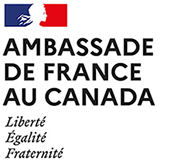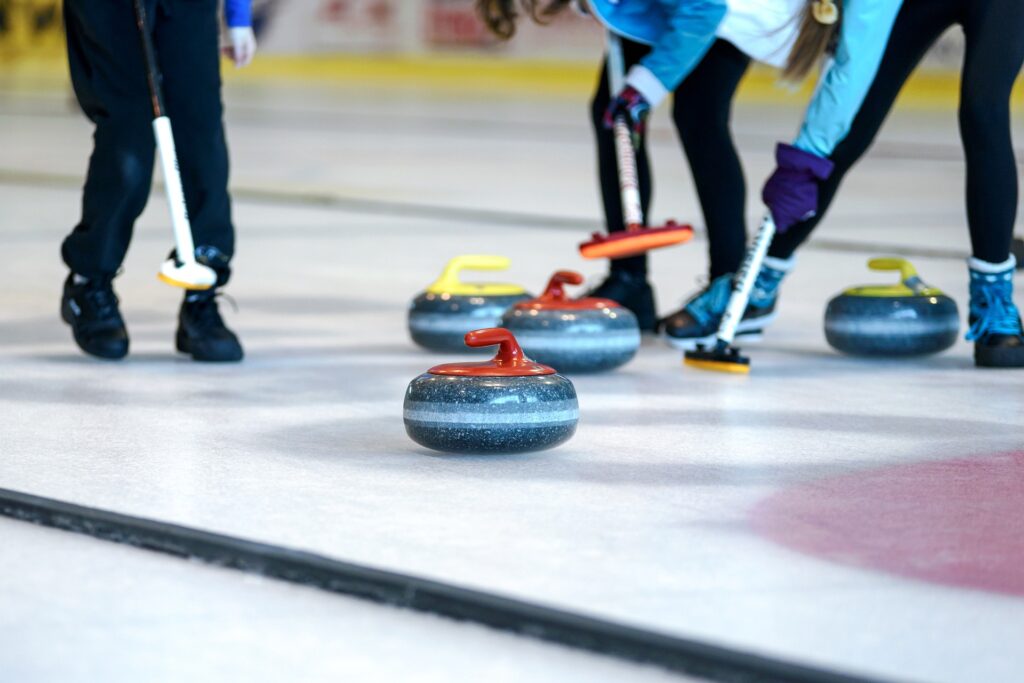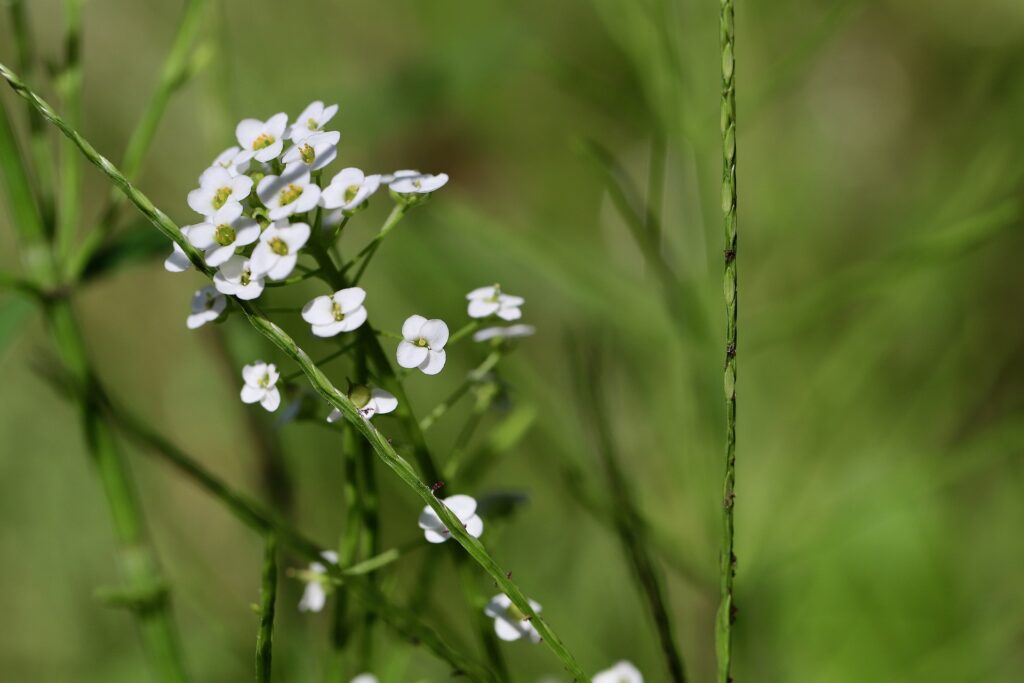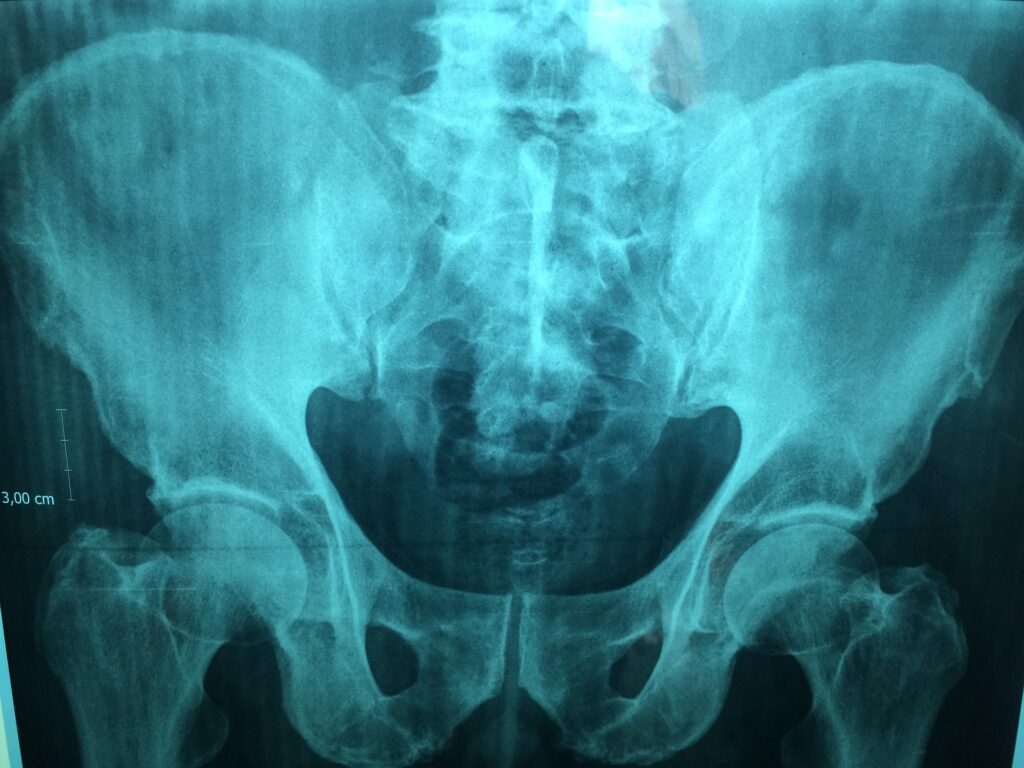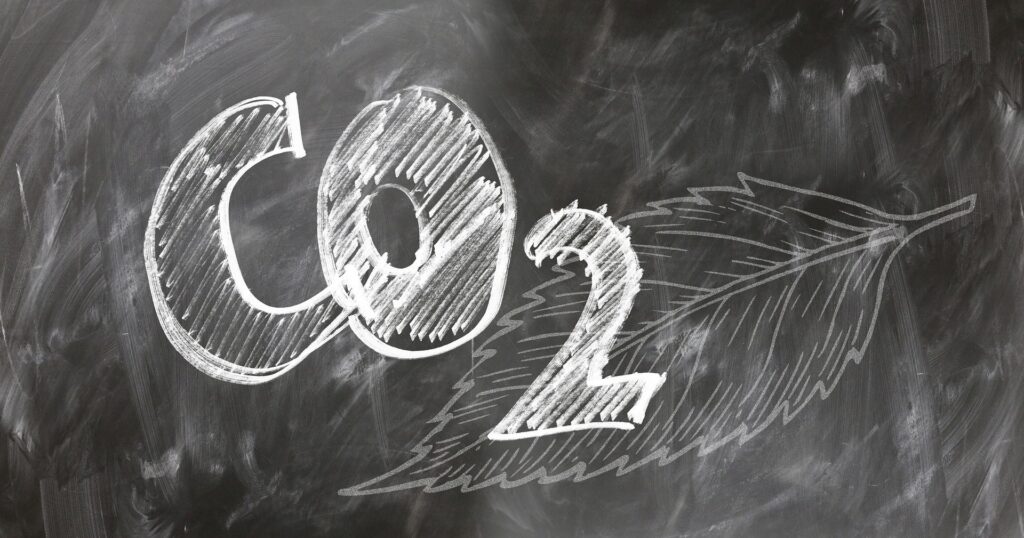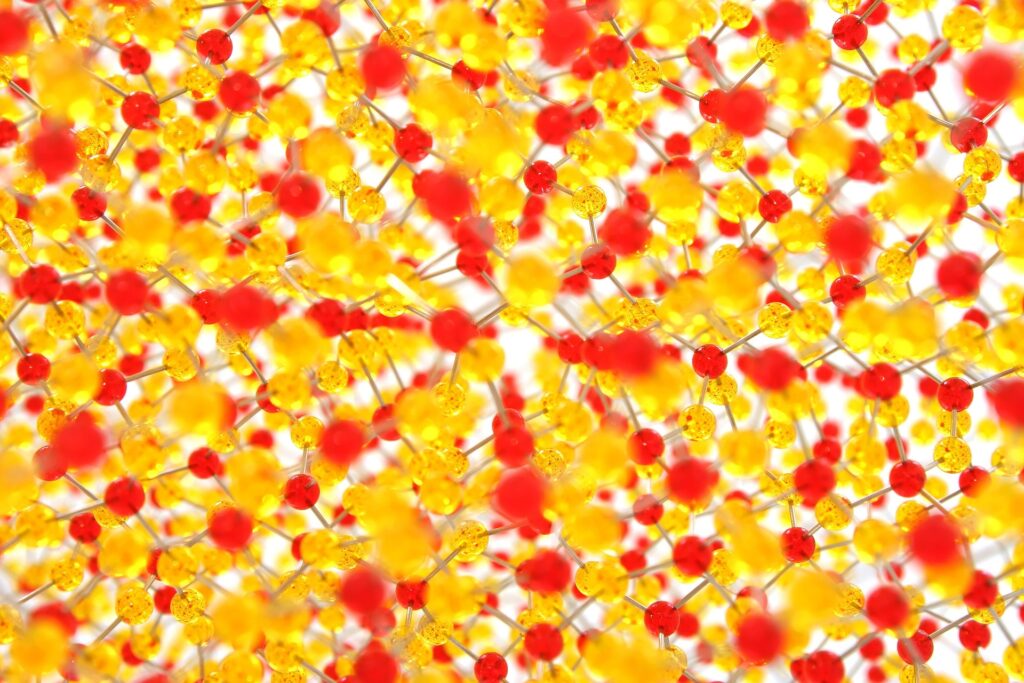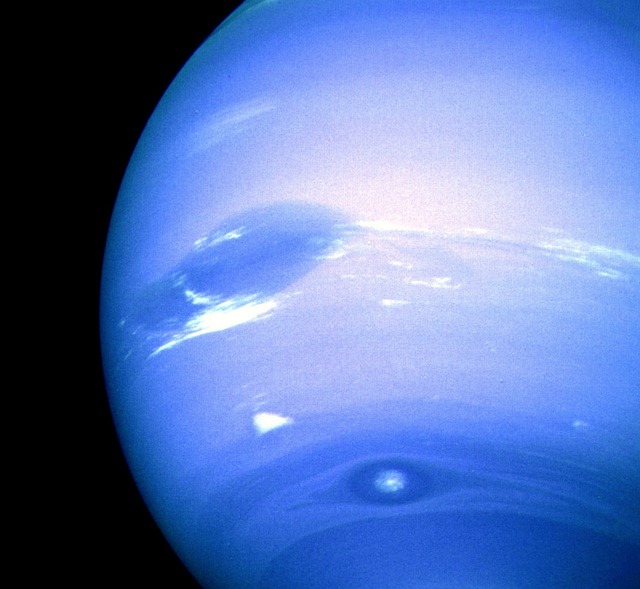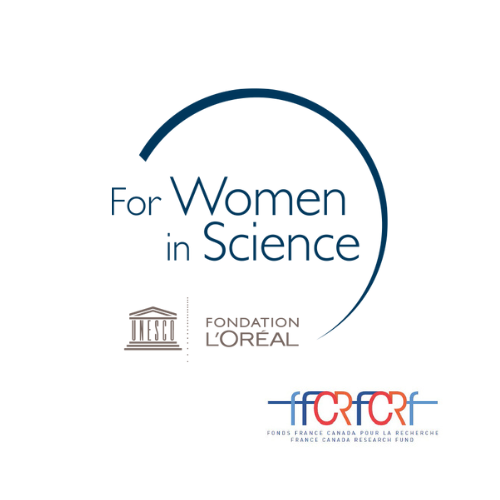Discover the testimonies of the FCRF winners!
 The 2023 Arctic Winter Games: Youth, Culture and the Arctic Environment – Christine Dallaire (University of Ottawa) & Julien Fuchs (Université de Brest), 2022.
The 2023 Arctic Winter Games: Youth, Culture and the Arctic Environment – Christine Dallaire (University of Ottawa) & Julien Fuchs (Université de Brest), 2022.
This research project focuses on the 2023 Arctic Winter Games (January 29 – February 4, 2023) in Wood Buffalo (Alberta, Canada). This territory is home to Canada’s largest national park, and covers the ancestral lands of the Cree, Dene and Métis peoples.
Since their creation, the Games have been committed to respecting Arctic culture and nature. The aim is therefore to understand how the sustainability of these Games – combining social and environmental issues – is envisaged in concrete terms, focusing on the leaders and participants.
The aim will then be to provide the organizers with an objective view of the event’s organization and areas for improvement (carbon footprint of the Games, positioning of environmental issues in relation to the community and identity issues of the Arctic at the heart of the Games, etc.). Another objective is to see what reactions and adjustments the research on the notion of sustainability of the Games will elicit from the organizers.
In November 2022, the French team from the University of Brest’s Faculty of Sport and Education (Pr. Julien Fuchs (PI), Elina Bertet (PhD student, winner of a MESR/FCRF doctoral contract) and Camille Gontier (University lecturer)) travelled to the University of Ottawa to meet the Canadian partner team of Pr. Christine Dallaire and her PhD student.
 Biological carbon pump in the context of global change – Frédéric LE MOIGNE (Université d’Aix-Marseille) & Uta PASSOW (Memorial University), 2021.
Biological carbon pump in the context of global change – Frédéric LE MOIGNE (Université d’Aix-Marseille) & Uta PASSOW (Memorial University), 2021.
Collaboration on a biological carbon pump project in the context of climate change between the University of Aix-Marseille and Memorial University is still ongoing.
This led to a highly successful research visit to Canada by Maeva Gesson, a French doctoral student, for joint experiments.
Together with a post-doctoral researcher from Memorial University, Carolina Cisternas Novoa, Maeva carried out several experiments on the fragmentation of marine snow. One of the major hypotheses is that the process of aggregate fragmentation affects the functioning of the biological carbon pump.
These experiences enabled Maeva not only to learn new methods of analysis, but also to broaden the range of species she could test. She also had access to more scientific equipment (including specialized incubators and environmental chambers), assessing both their strengths and limitations. In addition, by working closely together for five weeks, both parties were able to refine their experimental protocols together.
The results of the experiments are currently being analyzed in each of the respective laboratories, and further collaborations and visits are planned.
A « fruitful collaboration » – Uta Passow, Memorial University
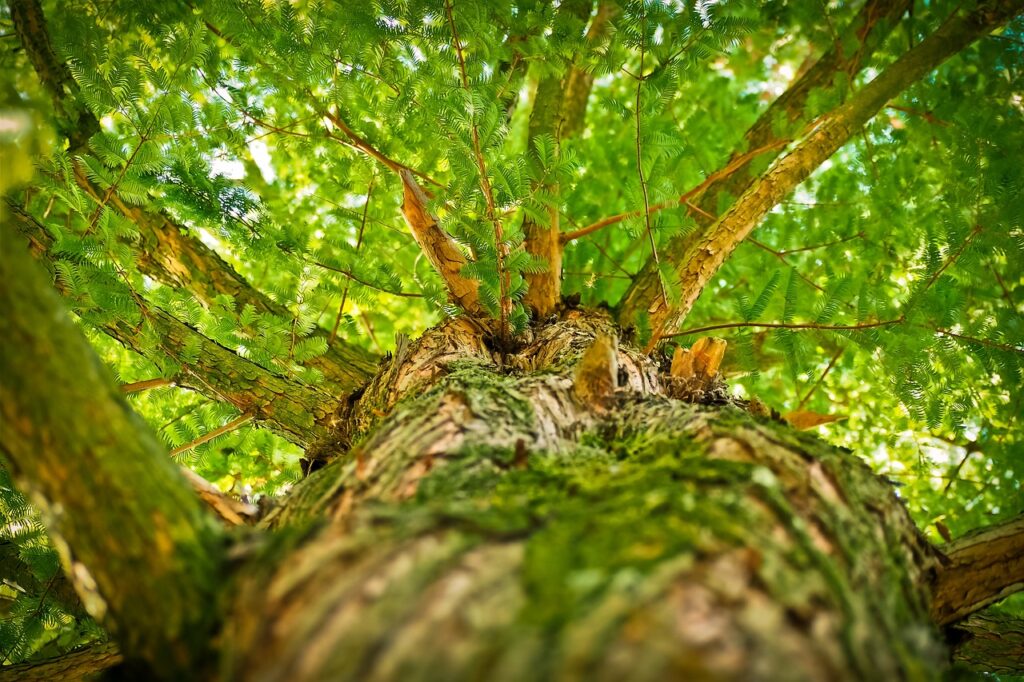
Assisted gene flow and adaptation to climate change in organisms with complex life cycles – Ophélie RONCE (Université de Montpellier) & Sarah OTTO (University of British Columbia), 2020.
Adèle (a PhD student based in Montpellier) and Linnea (a PhD student based in Vancouver) worked together on a model of assisted gene flow in long-lived species, under the supervision of Sally Otto and Ophélie Ronce.
First, they worked on a modeling project that focuses on understanding how the optimal seed source varies in long-lived trees in a warming climate, performing simulations for this project under several scenarios.
In her second visit in Vancouver, Adèle also began working on a project that focuses on preventing genetic and demographic swamping. During this time, Adèle also had the opportunity to discuss with other students and to participate in some discussions groups.
She is currently in her last year of PhD, completing the writing of her first manuscript and analyzing the new model that she developed at UBC with Sally Otto.
Ophélie Ronce collaborated with mathematician colleagues in Montpellier and Lyon to develop models of adaptation to an environment changing in time and/or space, as is typical for climate change. A paper has been accepted in the journal Theoretical Population Biology in 2023. A second theoretical manuscript has been submitted, showing how adaptation may speed up or slow down range shifts in the context of climate change.
Ophélie Ronce also coordinated the writing of a research project on the risks and potential benefits of assisted gene flow, involving six different teams in Montpellier, Avignon, Orléans and Paris. It also includes philosophers and researchers in social sciences to study questions related to ethical values of assisted gene flow.
The project started in May 2020, and was extended until May 2024.
Impact of climate change on the Beaufort Sea ecosystem: relationship between solar radiation propagation, photosynthesis and bacterial activity – Marcel BABIN (CNRS) & Vincent WARWICK (Université de Laval), 2004.
Marcel Babin and Warwick Vincent, French and Canadian winners of the 2004 France-Canada Research Fund (FCRF), were able to initiate the creation of the International Takuvik Research Laboratory (IRL, ex-UMI) thanks to the FCRF.
Dedicated to studying the impact of climate change on terrestrial and marine systems in the Arctic, the Tatuvik laboratory is the result of a partnership between Université Laval and the CNRS, and now employs around one hundred people.
 A low-noise anti-fouling surface plasmon resonance concept for the diagnostics of inflammation biomarkers in serum and in extracellular vesicules’ cargo – Sabine SZUNERITS (Université de Lille) & Jean-François MASSON (Université de Montréal), 2022.
A low-noise anti-fouling surface plasmon resonance concept for the diagnostics of inflammation biomarkers in serum and in extracellular vesicules’ cargo – Sabine SZUNERITS (Université de Lille) & Jean-François MASSON (Université de Montréal), 2022.
“During my visit to Lille as part of the FCRF project, I presented a seminar on our research work on Monday October 24, 2022, and we began our first experiments on October 25. We are preparing a joint literature review article.
During the recent visit of a researcher from Lille to UdeM as part of our collaborative project, we advanced a key stage of our project. We anticipate Canadian researchers visiting France this summer or fall. We have also published a literature review article on a subject related to our study” – Jean-François Masson, Université de Montréal.
David Geilfuss, from the University of Lille, also visited Professor Jean-François Masson in the Department of Chemistry at the University of Montreal from January 19 to February 23, 2023.
Mapping the functional landscape of KAI2/HTL receptors in plants – Catherine RAMEAU (INRA) & Shelley LUMBA (University of Toronto), 2019.
The group resulting from the collaboration between INRA and the University of Toronto has already published an article in the renowned PNAS (“Proceedings of the National Academy of Sciences”).
“We would be delighted to be able to continue our collaboration with the support of the FCRF thanks to this extension. We’ll be able to accelerate our progress and generate more publications.” – Shelley LUMBA, University of Toronto.
 Investigating Healthy and Pathological Bone with Synchrotron X-Ray Scattering and Electron Microscopy – Kathryn GRANDFIELD (McMaster) & Aurélien GOURRIER (U Grenoble-Alpes), 2018.
Investigating Healthy and Pathological Bone with Synchrotron X-Ray Scattering and Electron Microscopy – Kathryn GRANDFIELD (McMaster) & Aurélien GOURRIER (U Grenoble-Alpes), 2018.
This scholarship was very helpful in supporting a Master’s student from Canada who visited the Laboratoire Interdisciplinaire de Physique, UMR5588 CNRS/Univ. Grenoble Alpes in 2019. Following this, she agreed to pursue a PhD funded by a Canadian fellowship in cotutelle between the laboratories of McMaster University and Université Grenoble Alpes.
The scientific advances made were significant enough to be presented at the 13th International Conference on the Chemistry and Biology of Mineralized Tissues in 2019. They have also been published in the Journal for Structural Biology. In addition, the project recently received a prestigious research grant from the Human Frontier Science Program to address a fundamental biological question about bone mineral homeostasis.
“This FCRF grant, which helped launch our collaboration, has been very fruitful and we are grateful for your initial support.” – Aurélien GOURRIER, Université Grenoble-Alpes
 Ru-Ni-based nanomaterials for the capture and methanation of CO2 – Jan KOPYSCINSKI (McGill University) & Frederic MEUNIER (Université Lyon 1), 2022.
Ru-Ni-based nanomaterials for the capture and methanation of CO2 – Jan KOPYSCINSKI (McGill University) & Frederic MEUNIER (Université Lyon 1), 2022.
“The results are promising. We hope to be able to publish an article and share our work soon.” – Frédéric Meunier, Université Lyon 1.
“I’ll be in Lyon to visit the institute, give a presentation and discuss research progress and future work with Dr Meunier.” – Jan KOPYSCINSKI, McGill University.
Hybridization between earth-abundant molecular catalysts and light absorbing materials for costeffective CO2 photocatalytic reduction – Robert GODIN (UBC) & Marc ROBERT (Université de Paris), 2022.
Robert Godin, Assistant Professor of Chemistry at UBC’s Okanagan campus, is collaborating with Marc Robert of the Université de Paris to advance solar fuel systems. Godin and Robert’s project will combine the expertise of both research teams.
Lessons learned from small-scale laboratory studies will be applied to the development of larger-scale demonstration systems, which is important for accelerating technology deployment. Ultimately, the aim is to produce scalable, sustainable solar fuel systems that are cost-competitive with energy derived from fossil fuels.
 Relationship of performance of fuel cell electrochemical materials to surface structure and properties – Philippe MARCUS (Ecole Nationale Supérieure de Chimie Paris) & Jingli LUO (University of Alberta), 2012.
Relationship of performance of fuel cell electrochemical materials to surface structure and properties – Philippe MARCUS (Ecole Nationale Supérieure de Chimie Paris) & Jingli LUO (University of Alberta), 2012.
“With the support of the France-Canada Research Fund, we had a very fruitful collaboration with Professor Philippe Marcus, Director of the Surface Physicochemistry Laboratory at Chimie ParisTech. I sent my PhD student, Ning Yan, to work in Professor Marcus’ laboratory between February 23 and March 25, 2013.
Thanks to this collaboration, we published a paper entitled : The surface evolution of La0.4Sr0.6TiO3þd anode in solid oxide fuel cells: Understanding the sulfur-promotion effect.” – Jingli LUO, University of Alberta
 Improving planetary ephemerides and knowledge of massive objects in the outer Solar System – Brett GLADMAN (UBC) & Jacques LASKAR (CNRS), 2022.
Improving planetary ephemerides and knowledge of massive objects in the outer Solar System – Brett GLADMAN (UBC) & Jacques LASKAR (CNRS), 2022.
The aim of the project is to improve our knowledge of massive objects in the outer solar system, focusing on the Kuiper Belt, a group of objects located beyond Neptune.
The French team brings leading expertise by providing access to high-performance computing systems (orbit and mass determination), while the Canadian team brings information from direct telescopic observations, as well as an understanding of the origin and dynamical evolution of the outer solar system.
By providing collaborative opportunities for PhD students, the FCRF gives the team a unique opportunity to assess the feasibility of certain proposals that suggest very massive planets still lurk beyond Neptune. The results could ultimately dismiss the idea of the existence of an object of this size, or could on the contrary suggest that it must exist and provide clues as to where it might be found.
 Improving Optimization Algorithms through Advanced Eigenvalue Approximation – Clément ROYER (Université Paris Dauphine-PSL) & Warren HARE (UBC), 2022.
Improving Optimization Algorithms through Advanced Eigenvalue Approximation – Clément ROYER (Université Paris Dauphine-PSL) & Warren HARE (UBC), 2022.
Warren Hare, professor in the Department of Computer Science, Mathematics, Physics and Statistics at UBC‘s Okanagan campus, joins forces with Clément Royer from Université Paris Dauphine-PSL. They bring together complementary approaches in the field of mathematical optimization. Applications of optimization range from energy production to virtually all areas of scientific research.
Students will expand their professional networks and benefit from mentoring and research training opportunities outside their home university, while helping to establish what is hoped to be a long-term collaboration.
“The project is going very well and we are delighted to announce that a fine research paper is in preparation. We are very grateful to the FCRF for offering us this wonderful opportunity to develop new collaborations, expand our research and discover new cultures.” – Warren Hare, UBC.
 The vocal characteristics of engaging second language teaching : an interdisciplinary study using artificial intelligence and psychoacoustics – Angelica LIM (Simon Fraser University) & Jean-Julien AUCOUTURIER (Université Bourgogne Franche-Comté), 2022.
The vocal characteristics of engaging second language teaching : an interdisciplinary study using artificial intelligence and psychoacoustics – Angelica LIM (Simon Fraser University) & Jean-Julien AUCOUTURIER (Université Bourgogne Franche-Comté), 2022.
With funding from the France-Canada Research Fund (FCRF), Angelica Lim and Paige Tuttosi, a doctoral student at Simon Fraser University, are collaborating with FEMTO-ST researcher Jean-Julien Aucouturier to study how English speakers can learn French more effectively, and how French speakers can learn English more effectively.
Using artificial intelligence and electroencephalogram technology, the researchers aim to reproduce the characteristics of the human voice in these two languages and apply them to the voices of robotic teachers.
As part of the collaboration, Mr. Tuttosi will travel to France to work with Mr. Aucouturier for six months.
 Since 1998, L’Oréal, in partnership with UNESCO, has been supporting the participation and contribution of women to the advancement of science through its “For Women in Science” program.
Since 1998, L’Oréal, in partnership with UNESCO, has been supporting the participation and contribution of women to the advancement of science through its “For Women in Science” program.
In 2013, the FCRF joined the movement by establishing a partnership with L’Oréal Canada to support the participation of women scientists in scientific cooperation projects between France and Canada. Since then, two “L’Oréal Canada – FCRF” prizes have been awarded to doctoral and post-doctoral students each year as part of the France Canada Research Fund (FCRF) program.
L’Oréal Canada will provide each of the two winning candidates with a 5,000 CAD grant. The winners will also be invited to take part in a mentoring program for young girls, to share their passion for science with girls aged 9 to 14.
“Receiving the 2022 grant from the L’Oréal Canada/France-Canada Research Fund for Women in Science has been an incredibly rewarding experience. This fellowship has encouraged me to continue navigating the academic world with confidence, and has reinforced my belief that my research is important. In addition, it has enabled me to collaborate on a global scale with experts in my field, strengthening my academic connections and breadth of knowledge. I’m very grateful to L’Oréal and the France-Canada Research Fund for their generous support of women in science.” – Sarah DeGrace, Dalhousie University, 2022.
An Verhulst-Santos (CEO and President of L’Oréal Canada), Sarah DeGrace (winner of the L’Oréal Canada / FCRF award) and Pr. Ruby Heap (Canadian co-chair of the FCRF) during the “For Women in Science” ceremony, in November 2022, at the French Embassy.
“The role of women in scientific research needs to be more widely recognized than it is at present, and the support provided by a program such as the L’Oréal/FCRF For Women in Science Award goes a long way towards achieving this.” – Caroline Dubé, Université Laval, 2021.
An Verhulst-Santos (CEO & President of L’Oréal Canada), Caroline Dubé (winner of the L’Oréal Canada / FCRF award), Pr. Ruby Heap (Canadian co-chair of the FCRF) and H.E. Mme Kareen Rispal (French Ambassador to Canada) during the “For Women in Science” ceremony, in November 2021, at the French Embassy.
